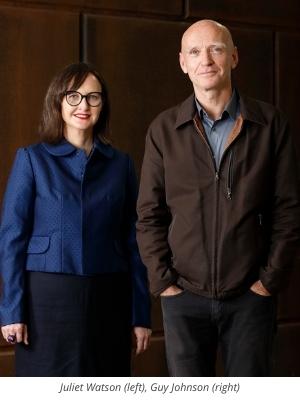New peer-reviewed research – Social Work Education and Homelessness

An article, titled Social Work Education and Homelessness: Mobilising Academic-Industry Partnerships to Create a Homelessness Subject authored by Juliet Watson, Sharlene Nipperess and Guy Johnson, was recently published in Australian Social Work, an international peer-reviewed journal reflecting current thinking and trends in Social Work.
The article discusses how the Unison Housing Research Lab (The Lab) leverages the partnership between RMIT and Unison Housing to create a dedicated undergraduate elective subject for social work students.
Summary of the peer-reviewed article, by Juliet Watson, Deputy Director of the Unison Housing Research Lab:
Homelessness has been identified as an important field of practice for social workers in Australia, and social workers have contributed substantially to homelessness research, policy and practice. In the paper we argue that the presence or absence of safe, affordable and appropriate housing affects all people’s lives; thus, it is important that social work graduates have a thorough understanding of how the homelessness and housing service systems operate, regardless of the field in which they go on to be employed. Even so, this has not translated to homelessness being a priority area for social work education. Currently, there are no guidelines stipulated by the Australian Association of Social Workers (AASW) through the Australian Social Work Education and Accreditation Standards (ASWEAS) for social work programs on how to transfer homelessness knowledge into social work education programs. This means there is no consistent and systematic method of disseminating homelessness knowledge to future social workers. In this article, we make a case for the incorporation of homelessness education into social work curricula.
Social work education needs to be informed by homelessness research, policy and practice that reflects the contemporary Australian environment. Students also need to be exposed to emerging concerns and challenges for the housing and homelessness sector. We explore how this is possible through academic-industry engagement. Through consultation with RMIT Social Work and Unison, the Lab has created an industry- and evidence-informed undergraduate homelessness subject that addresses the gap of homelessness-specific preparation for social work students. The subject—Homelessness: contemporary themes, policy and practice—is coordinated by The Lab’s resident social work academic and the curriculum is underpinned by a critical social work perspective.
We contend that course work that incorporates both academic and industry perspectives better prepares social work graduates for professional life. By mobilising the RMIT-Unison partnership, The Lab has been able to offer unique opportunities to students undertaking the homelessness subject. These include providing a range of perspectives including consumers, advocates, managers, workers and researchers. Moreover, the partnership has granted social work students, as well as students from other social science disciplines who can take the subject, direct access to industry experiences including the needs of, and challenges facing, the sector. The partnership allows industry perspectives to be embedded in the subject curriculum alongside critical social work perspectives in timely, ongoing and reflexive ways that are sensitive to changes in policy and practice.
The subject is structured to expose students to the context of homelessness in Australia, while also locating this within larger global concerns. This is grounded in the broader societal conditions that produce and maintain the dynamic and precarious environment of homelessness. Accordingly, this article provides details of how the subject is designed, the topics covered and the assessment tasks. These are all guided by the learning outcomes expected of students undertaking the subject. On completion of the subject the students are expected to be able to:
1. define and articulate the concept of homelessness and how it is affected by policy, practice and research;
2. critically analyse, synthesise and reflect on how factors such as housing market conditions, race, class, gender, sexuality, ability and place contribute to homelessness;
3. identify and appraise policy and practice contexts affecting the delivery of homelessness services; and
4. critically analyse and apply theoretical frameworks that inform homelessness research, policy and practice.
Collaboration with Unison, in particular, has meant the course work has been developed with the needs of the sector in mind alongside attending to the scholarly requirements.
Overall, the subject exposes students to homelessness as a complex and dynamic field that requires examination and contestation of dominant socially, politically, and culturally entrenched assumptions. Its basis in an academic-industry partnership has resulted in a practice- and policy-relevant subject that not only prepares social work graduates for entering the workforce, but also provides the opportunity to create a sustainable educational model that can be replicated and that will inform the work of future social work practitioners, policy makers, and researchers.
If you are interested in reading the full article, please contact: juliet.watson@rmit.edu.au
About the Unison Housing Research Lab
The Unison Housing Research Lab is a unique education and research collaboration between RMIT University and Unison Housing. The Lab was established to develop and implement a collaborative teaching program and undertake innovative policy and practice relevant housing research informed by the experiences of services users and providers.
>> Click here to find out more about the Unison Housing Research Lab and to access other research reports and Think Pieces.



